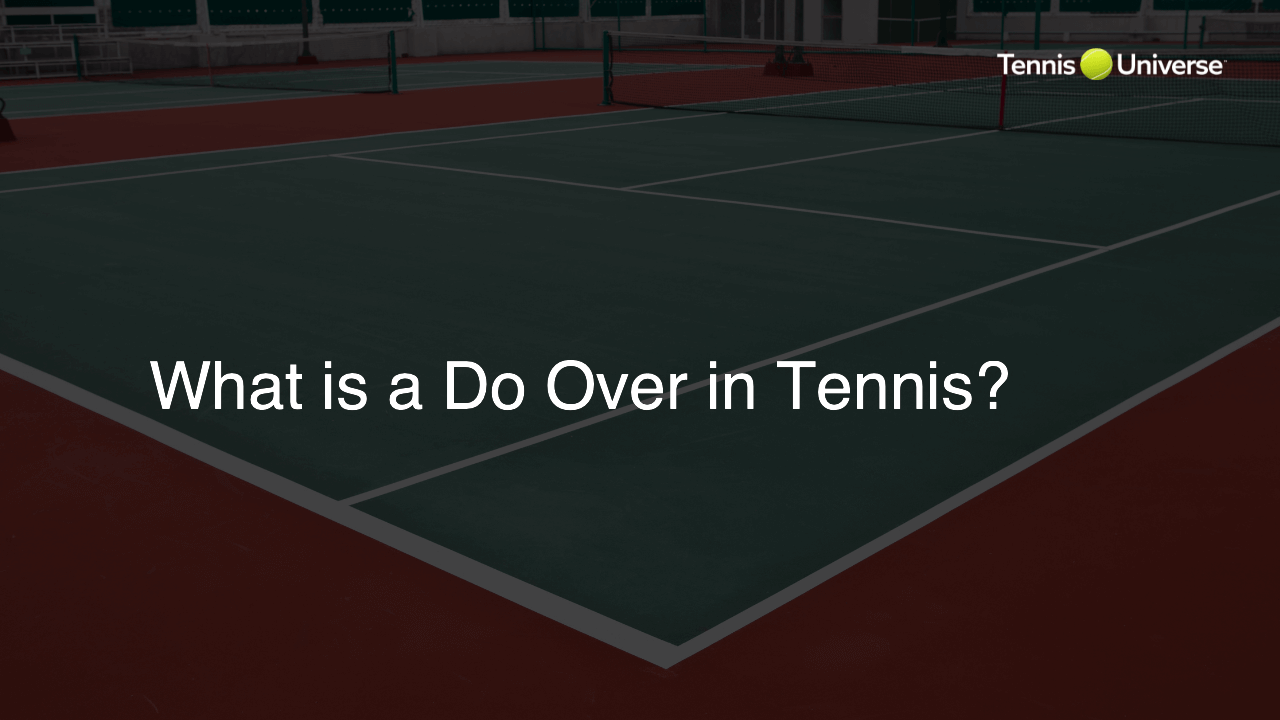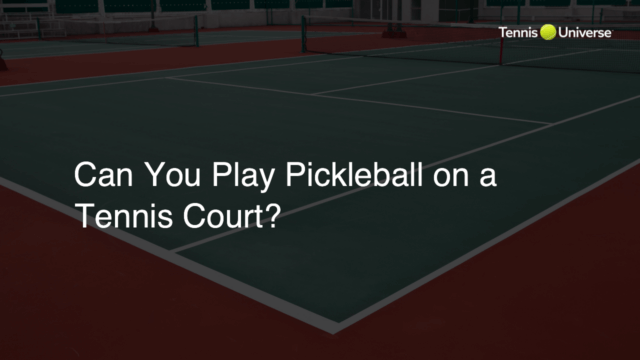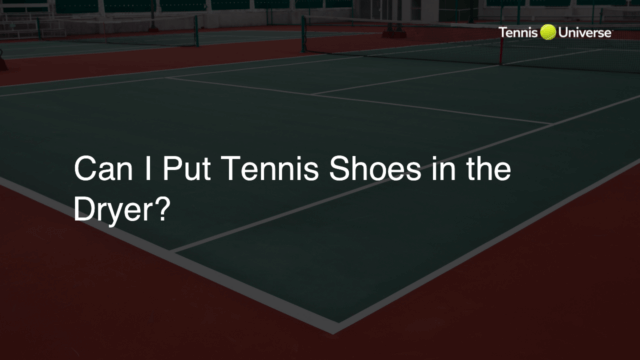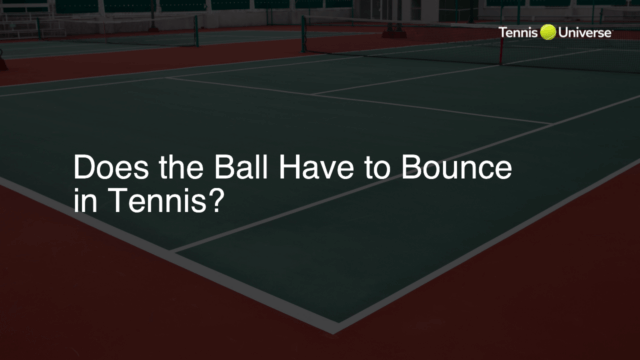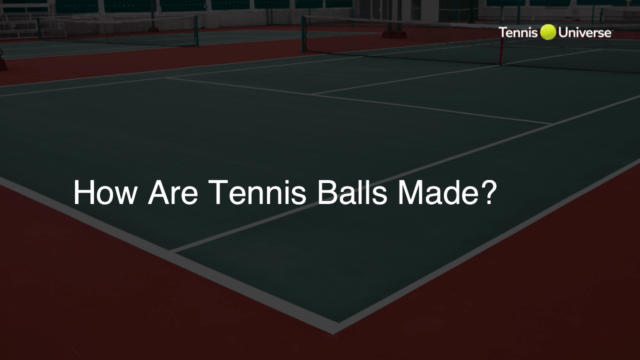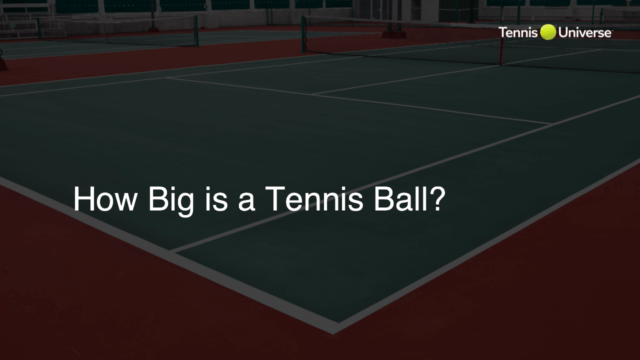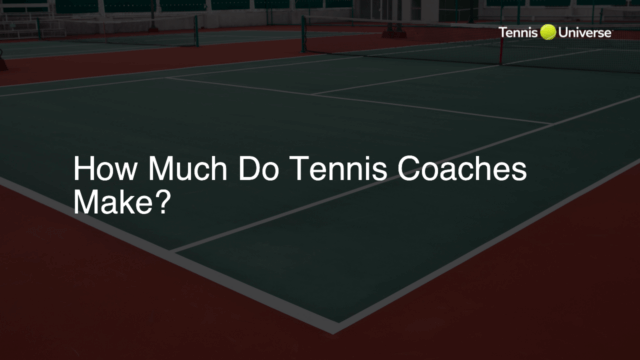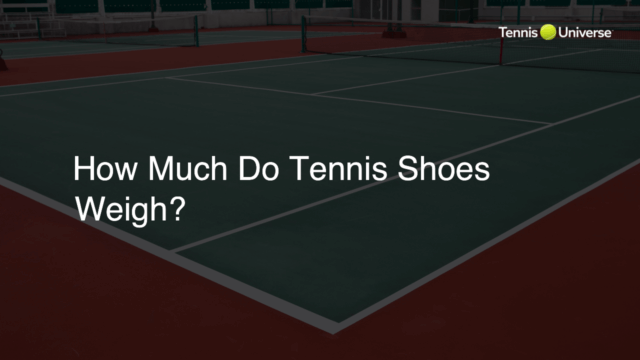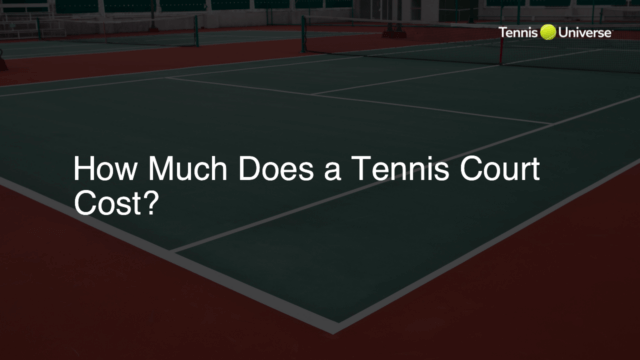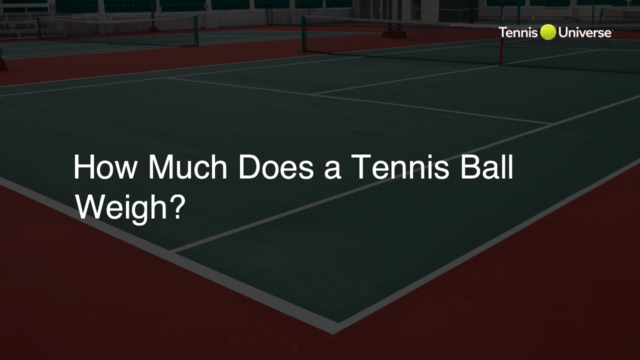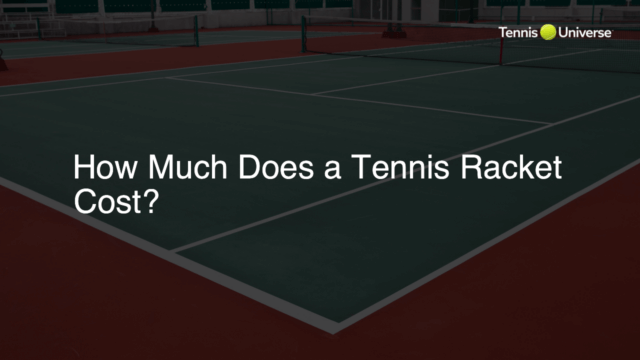A Do Over in tennis refers to replaying a point due to an interruption, external interference, or an unforeseen event that hinders the fair play of the game. This allows both players to restart the point without any penalties.
Understanding the Do Over in Tennis
A Do Over in tennis occurs when a point is replayed due to external interference, an interruption, or an unexpected event that impacts the fair play of the game. It ensures that the point is contested fairly, without any penalties affecting the players.
Common Situations for a Do Over
Some typical instances in which a Do Over may be granted include:
- A ball from another court interrupts the point.
- The chair umpire or line judge makes a late or incorrect call.
- There is a disturbance in the crowd or a sudden noise.
- A player’s equipment, such as a tennis racket, is accidentally lost during play.
When a Do Over is Not Allowed
On the other hand, there are certain situations in which a Do Over is not permitted, such as:
- A player makes an unforced error or misses a shot.
- A player disagrees with a legitimate call made by the umpire or line judge.
- The interruption is deemed inconsequential to the outcome of the point.
Role of Officials and Players in Granting a Do Over
In professional tennis matches, the decision to allow a Do Over rests with the chair umpire. They intervene and determine if the validity of the point has been compromised, instructing the players to replay it if necessary. In amateur or recreational play, players may mutually agree on whether to replay a point based on fair play principles and sportsmanship.
Do Over and Tennis Etiquette
While there may not be a binding rule that dictates when a Do Over should be offered, following tennis etiquette and maintaining good sportsmanship can contribute to a positive experience for all participants. Here are some tennis tips to ensure you adhere to the right protocols:
- Always be prepared to offer a Do Over to your opponent if you believe the circumstances warrant it. This fosters fair play and respect between players.
- Conduct yourself professionally, even during informal matches. Abide by the rules and avoid unnecessary arguments or disputes.
- Respect the decision of the umpire, line judges, or your fellow players, even if you disagree with a specific call.
Influencing Factors and Decision-Making
Various factors can affect the decision to grant a Do Over, especially in amateur and recreational matches where there are no officials present. While following tennis tips can help, the overall outcome of a Do Over may depend on:
- Severity of the disruption: A significant outside influence, such as a stray ball entering the court, may warrant a Do Over.
- Timing of the event: The Do Over decision may depend on the point of play during which the interference occurred. If the disruption happened at a critical moment of the point, a Do Over may be more likely to be granted.
- Players’ agreement: Always communicate and find a common ground with your opponent. The player’s mutual understanding and sense of fairness will impact the decision to replay the point.
Frequently Asked Questions (FAQ)
In case you still have questions about Do Overs in tennis after reading this blog post, we’ve compiled a list of frequently asked questions to help clarify the topic further:
Why is a Do Over called in tennis?
A Do Over is called in tennis to replay a point after an external interference, interruption, or unexpected event has occurred that impacts the fair play of the game. It aims to ensure a fair contest and a level playing field for both players.
Are Do Overs unique to professional tennis?
No, Do Overs are not unique to professional tennis and can be applied in amateur and recreational matches as well. The premise is the same: to maintain fair play and sportsmanship among the players by ensuring that any unforeseen disruptions during play do not negatively impact the players or the match’s outcome.
What happens to the score after a Do Over?
When a Do Over is granted, the affected point is replayed, and the score remains unchanged until the replayed point is concluded. The players continue with their existing scores and positions, ensuring that the game proceeds without unfair advantages or penalties.
Can a player demand a Do Over?
While a player can express their opinion and request a Do Over, it is ultimately the chair umpire’s decision in professional tennis. In amateur or recreational matches, players might discuss and mutually agree on whether or not to replay the point based on fair play and sportsmanship principles.
Are there any specific rules regarding Do Overs in the official tennis rulebook?
There are no explicit rules regarding Do Overs in the International Tennis Federation (ITF) rulebook. However, the chair umpire has the authority to make decisions in the players’ best interest and the spirit of fair play, which includes determining when a Do Over is necessary.

